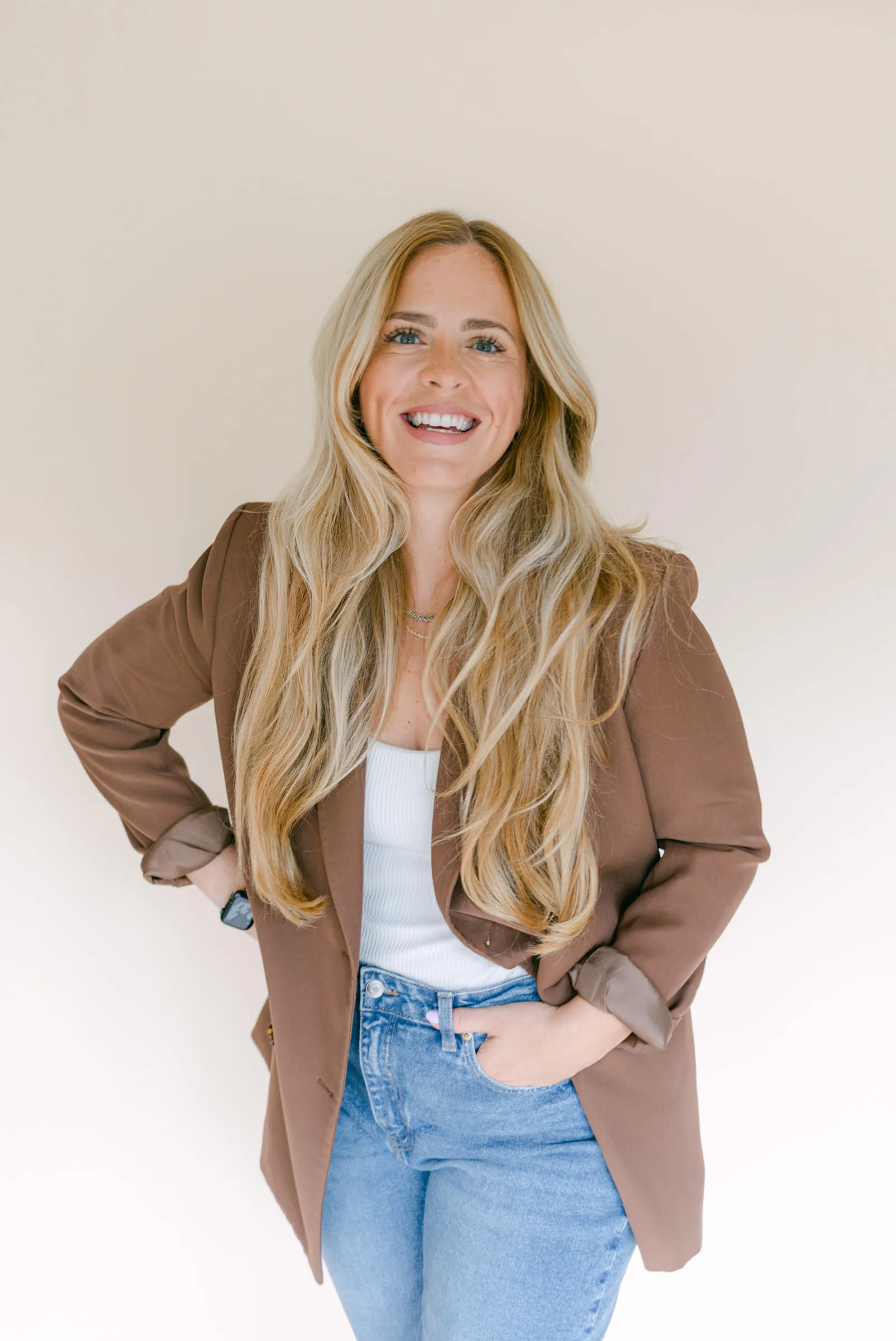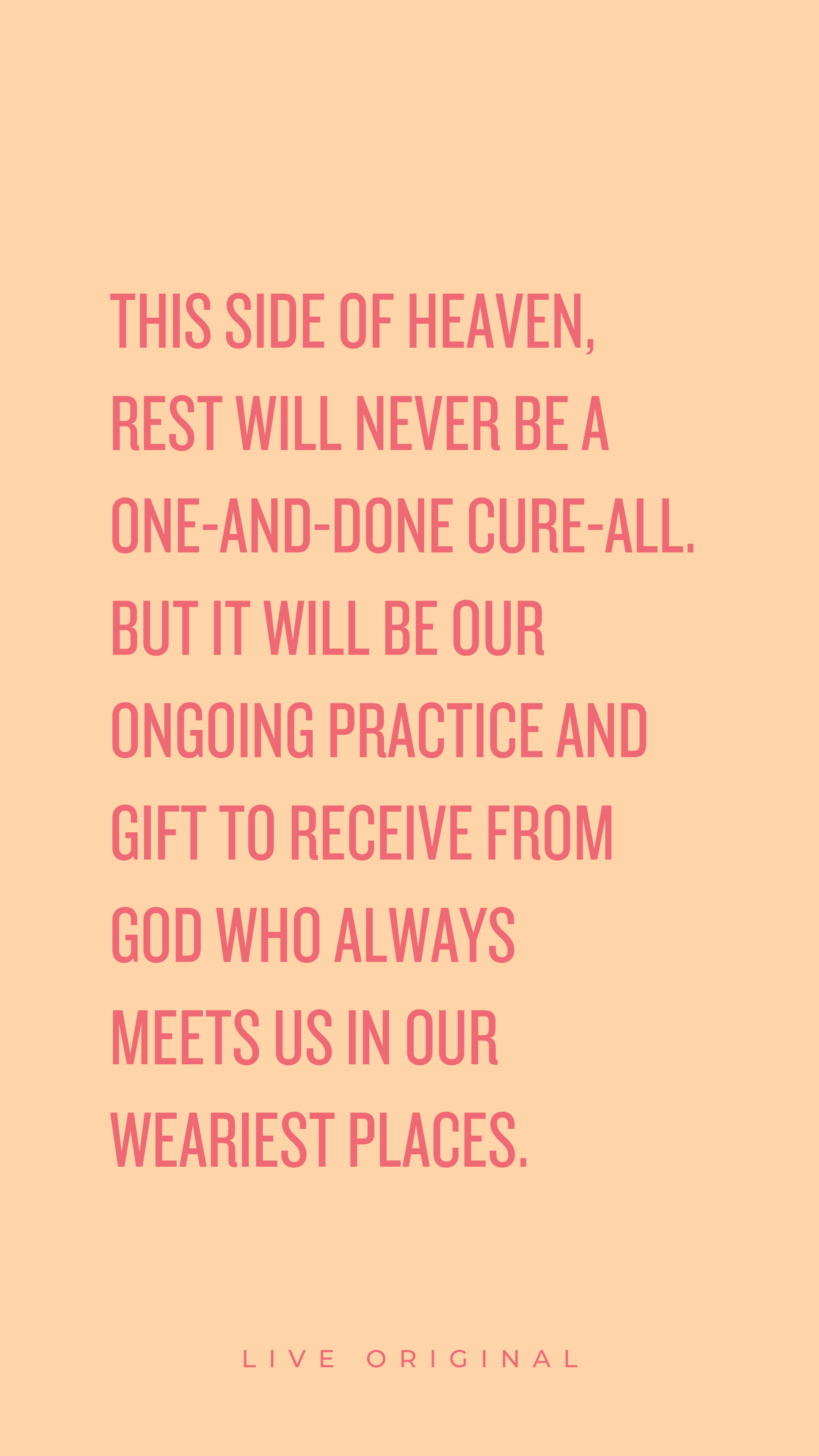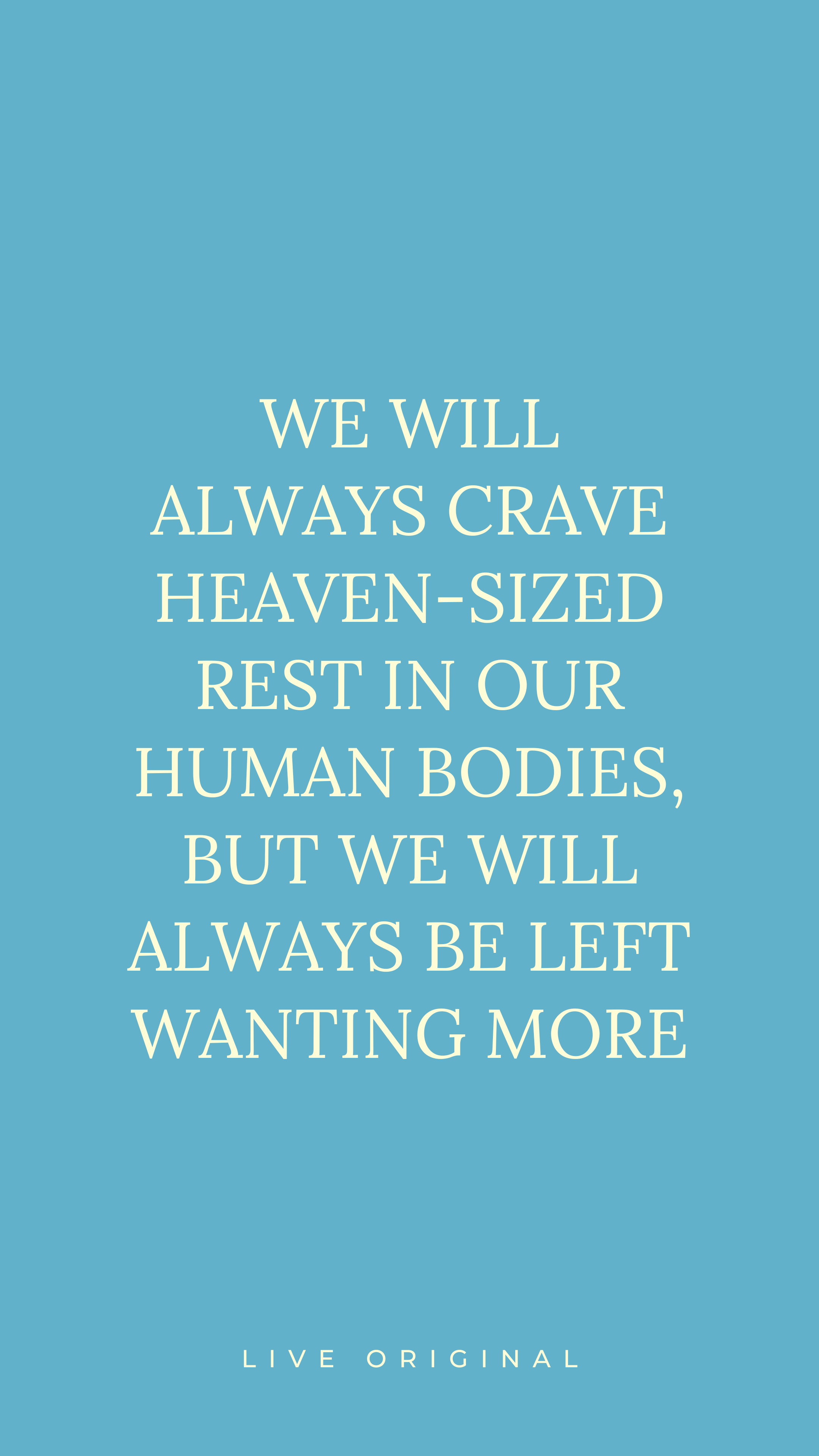Some years ago, I experienced my first significant fall with fatigue.
I’d just finished the edits on my first book; my kids were eight, seven, six, and two. Our other baby, our church plant, was one year old, and like most one-year-olds—it was fussy, hands-on, and making messes as it found its feet. My online print shop had a team of three women, and the profits from our sales funded three church plants: ours in Charleston, South Carolina, one in Pakistan, and one in Amsterdam.
In that season, I hadn’t yet reconciled that I was a working mom. I was convinced I could be the “room mom” in all the elementary classes, be present for every naptime cuddle, and I was still convinced I should be making every meal. I wanted to be everything to everyone, and I wanted to make it all work.
Spoiler alert: Wanting to be everything to everyone is often the preamble to a breakdown of epic proportions.
I had also just begun to travel to teach and preach at conferences, which felt like a great way to use my God-given gifts and empower other women.
But because I didn’t love being away from my kids, I’d load up on family time before and after being away—trying desperately to make sure that no one felt my absence, that no one else paid for me stepping into my calling.
You can imagine who did pay in the end.
What really tripped me up was that I wasn’t trying to be all things for the approval of others; rather, it was the recognition that everything mattered.
I was driven by a deep-seated belief that my work was important, my family was necessary, and for me to steward it well—I had to do it all. I had this much right—yes, all of it mattered deeply! But it wasn’t all on me, and I was struggling because I believed the subtle lie that it was. People needed the finances from our business; they needed their salaries . . . so I had to keep pushing.
My kids needed a loving, present mom . . . so I had to keep pushing.
Our church needed attention, care, prayer, and shepherding . . . so I had to keep pushing.
There weren’t a lot of warning signs, but if I’m honest—there also wasn’t anyone telling me, “You don’t have to do it all.” Because I didn’t express my exhaustion and because I was working under the assumption that if it was hard, it was my fault: no one knew I was struggling.
Pretending like you can handle everything, even when you’re exhausted, is the surest way to burn out fast.
Looking back, I have so much compassion for that woman, desperate to keep going. She was convinced that she was the problem, that she’d let everyone down with her weakness, and that her fatigue was a failure.
I was still buying the lie that I had to push through, that somehow exhaustion was a badge of honor, and that this is just the way it was. I thought it might be better, the constant fatigue, in a different season. I wasn’t ready to change my life to experience life change.
This tumble, this terrific fall, wasn’t my last. Because this is the truth about being tired: it will get worse if it doesn’t get better.
There aren’t a lot of sexy stories about wild, life changing rest and here’s one reason why: we won’t experience real, lasting, eternal rest here on earth.
The bad news is that while we live under the effects of a fallen world and experience the pain and tension of corruptible bodies, we will always long for the complete recreation and blissful peace that heaven promises us.
The good news is that we can stop feeling shame about our fatigue and learn to live within the boundaries and limits of our human bodies while we eagerly look forward to the renewal and rest of eternity.
We will always crave heaven-sized rest in our human bodies, but we will always be left wanting more.
Our bodies will continue to break under the weight of the spiritual, physical, mental, and emotional exhaustion we’ve grown accustomed to. Our relationships will suffer: with God, with one another, and most assuredly with ourselves—we won’t recognize who we are or how we got here. We’ll buckle under the weight of anxiety, overwhelm, and stress will seep into every pore of our bodies until inflammation, fatigue, defeat, and depression are the norm.
I wonder what it would look like if you and I began to view accepting God’s gift of rest here on this earth as His compassionate and merciful condolence for that which is too much for us.
Our Father doesn’t give us rest to be cute, He gives us rest because WE NEED IT. He gives us rest because He is wildly compassionate to His children who live under the effects of a fallen world. If you have carried shame about feeling fatigue, in the name of Jesus—now is the time to get rid of it. You don’t need rest because you’re weak, you need rest because this life is too much—at best. Which is why our fully-human, fully-God friend and Savior also hit moments of exhaustion on earth. It’s a condition of being alive, of being a human in the now and not yet kingdom of God.
This side of heaven, rest will never be a one-and-done cure-all. But it will be our ongoing practice and gift to receive from God who always meets us in our weariest places.
Excerpted from Tired of Being Tired: Receive God’s Realistic Rest for Your Soul-Deep Exhaustion © 2024 Jess Connolly. Used by permission of Baker Books, a division of Baker Publishing Group.



















0 Comments